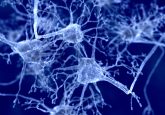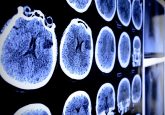Novel susceptibility loci for Alzheimer’s disease

Late-onset Alzheimer's disease (AD), a highly prevalent neurodegenerative disorder characterized by progressive deterioration in cognition, function and behavior terminating in incapacity and death, is a clinically and pathologically heterogeneous disease with a substantial heritable component. During the past 5 years, the technological developments in next-generation high-throughput genome technologies have led to the identification of more than 20 novel susceptibility loci for AD, and have implicated specific pathways in the disease, in particular intracellular trafficking/endocytosis, inflammation and immune response and lipid metabolism. These observations have significantly advanced our understanding of underlying pathogenic mechanisms and potential therapeutic targets. This review article summarizes...


